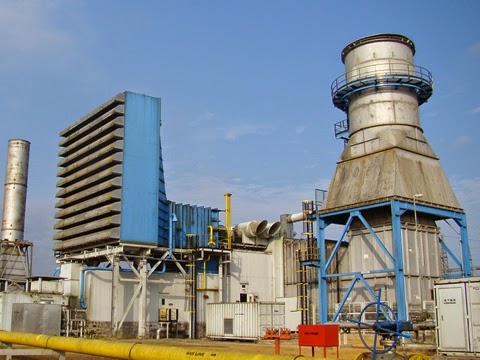Edo State Governor, Mr. Godwin Obaseki, has said with the 450MW Azura-Edo power project now on stream, the state is looking at attracting more investors for the Benin Industrial Park and technology innovation hubs, which would benefit from the conducive business environment and guaranteed power in the state.
The governor said this during the visit of 10 World Bank Executive Directors to the Edo-Azura Power Plant, near Benin City, the Edo State capital. According to the governor, “Power is the key to industrialisation and development. We need to extend the benefits of this investment. Now that we have power, what are we going to do with it?
The next set of projects is those that have to rely on this key infrastructure we have just created. “So, we would be looking at the Benin Industrial Park, building infrastructure to encourage and support manufacturers to come in. We are looking at innovation hubs; we want to use the factor and advantage of 24/7 electricity to encourage technology groups and companies to be located in Edo State.”
Earlier, the World Bank Executive Director, Angola, Nigeria and South Africa sub-group, Ms. Bongi Kunene, said the institution was ready to partner with the state as long as projects are in line with the Bank’s focus, noting that the Edo- Azura power project is an example of a solution to a key problem in the country. “The project is transformational. It gives us a scope of what we can do together. We are delighted to see solutions. We would want to commit ourselves to projects that make sense and are in line with our focus,” she said
The electricity sector in Edo State is undergoing an unprecedented transition. Today, Azura power is providing affordable, secure and reliable electricity by attracting investors with low risk, stable returns. A month ahead of the planned official commissioning of its 450 megawatts (MW) capacity power generation plant located in Benin City, Edo State, Azura Power has announced the completion of its whole plant run, indicating that all of its three turbines with a collective output of 450MW have been deployed in Nigeria’s national grid.
The $900 million power plant was originally supposed to be completed around December this year, but it achieved a construction timeline cutback record of about seven months, and was thus planned for commissioning in May. The coming on grid of its three units could, however, improve the total amount of electricity available to the national grid by 450MW.
Currently, Nigeria distributes an average of 4000MW to electricity consumers across its length and breadth. However, on Friday night, Azura disclosed through its official twitter handle, @AzuraPower, that all its three turbines had been synchronised to the grid with their generation outputs approaching 450MW. With the successful synchronisation of all three turbines to the grid, Azura and FGN (Federal Government of Nigeria) agencies have shown confidence that the early completion and evacuation of the plant will be met.
Edo-Azura Power sector provides enormous potential for investors. The Government of President Muhammadu Buhari, has started the process of solving Nigeria’s problem, by first solving Nigeria’s electricity problem. Manufacturing companies from Nigeria in Ghana, are set to relocate to Benin City, Edo State and take advantage of the liberal investment incentives here and improved power supply from Azura. Edo-Azura will provide electricity for industrial customers, typically, facilities and equipment which use electricity for processing, producing, or assembling goods; including diverse industries, such as manufacturing, mining, agriculture, and construction would prosper with uninterrupted electricity supply.
On December 29, 2017, Azura-Edo’s first turbine GT11 with a capacity of 153MW (capable of powering over 150 thousand homes) was synchronised to the national grid, 7 months ahead of schedule…It got to 40MW and it will gradually be ramped up to maximum capacity. 2nd turbine GT12 (153MW) will be synchronised to the national grid in January 2018 and 3rd turbine GT13 (153MW) came on board in March 2018.
Azura Power’s first turbine was synchronised to the national grid and commenced production of electricity for distribution across the country. The event marks the start of a four-month period of intensive commissioning of the 459MW Azura-Edo IPP located in Benin City, Edo State, which comprised three Siemens turbines.
Each of the turbines is capable of producing 153MW. A statement from the company said the first synchronised turbine will undergo a battery of tests over the coming five weeks. Tests on the second turbine will begin at the end of January 2018, with the tests on the third turbine commencing at the beginning of March 2018., the statement added, while the commissioning process will then conclude at the end of April 2018 when the plant is scheduled to reach full commercial operations.
The success of the project is also a reflection of the close cooperation and strong and consistent support that it has received from the three local communities of Ihovbor, Orior-Osemwende; and Idunmwowina and from the palace of His Royal Majesty, the Oba of Benin. “Whilst there is still some way to go and challenges to overcome, the project’s management team is confident that all parties will continue to work together to enable the power plant to reach full commercial operations well ahead of schedule. All is set for the smooth take-off of the planned Benin Industrial Park close to Azura with the receipt of the Preliminary Report by Governor Godwin Obaseki. The power plant would deliver much-needed additional power to Nigeria, and, in turn, the broader West African power grid. The project is expected to provide access to affordable electricity to about 14 million residential consumers at a fraction of the cost of self-generated power”.
EDO-Azura independent power plant will add 459 megawatts to Nigeria’s power grid by 2019. The project is expected to add 3,000 megawatts to the national grid by 2020 upon completion. One of the lessons from Edo-Azura power project is that it will maintain grid acceptable frequency limits of between 49.5HZ and 50.Hz at all times. Edo-Azura power project will introduce energy automation which will end power sector employees and customers’ collusion to steal energy. Nigeria’s energy challenge is not solely generation, Azura will be able to tackle and evacuate the electricity generated and the problem of stranded power will be over.
Azura-Edo is the first wholly project-financed IPP in Nigeria, and “consists of the construction, operation, and maintenance of a 459-megawatt, gas-fired, open-cycle power plant in the vicinity of Benin City, Edo State, Nigeria. It also includes the construction of a short 330-kV transmission line connecting the power plant to the Benin North substation and a short underground gas pipeline spur connecting the power plant to the country’s main gas trunk line.
The project will deliver power not only to Nigeria but also the broader West African Power Pool
The direct effect of providing constant and sustainable electricity will be that Nigerians in Edo State are assured of having sufficient supply of electricity to their homes and places of work. The ample supply of electricity would stimulate the creation of additional jobs. First, the increased jobs would be created via the construction and operation of power plants across Nigeria, as well as, the construction of facilities needed to supply fuel to these power plants. In addition, the infrastructure required to evacuate electricity from the power plants and distribute the electricity to Nigerians would also have to be developed. During the construction stage of these facilities, thousands of additional jobs would be needed.
Edo-Azura power project will contribute to ensuring adequate and reliable electricity supply that is necessary for Nigeria’s continued economic development. It will also support private sector participation, capacity development and better governance in Transmission Company of Nigeria and sector institutions, Multinationals or Medium, Small or Micro-Entrepreneurs (MSMEs) should relocate to Edo State.
Source: Nigerian Observer







